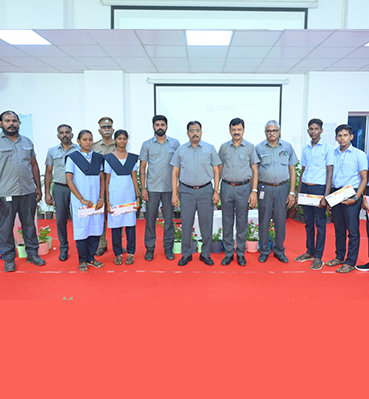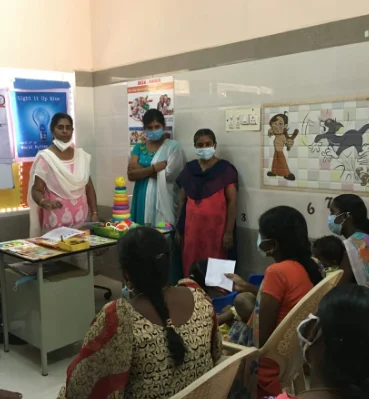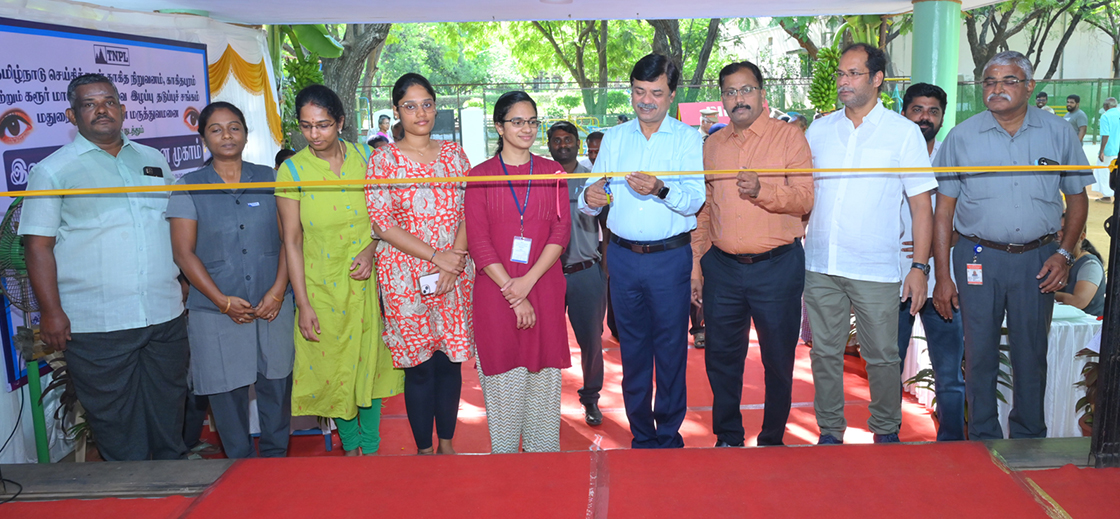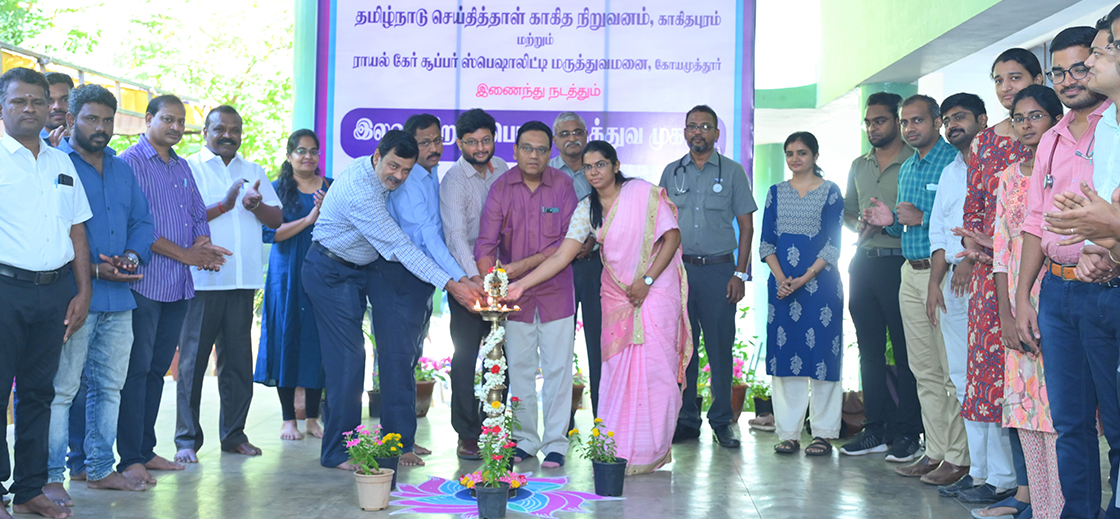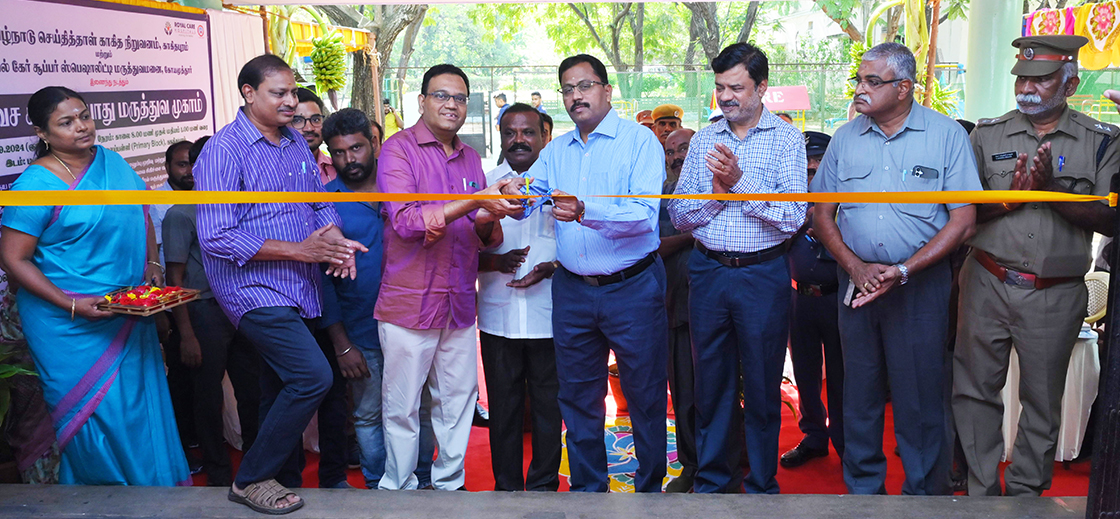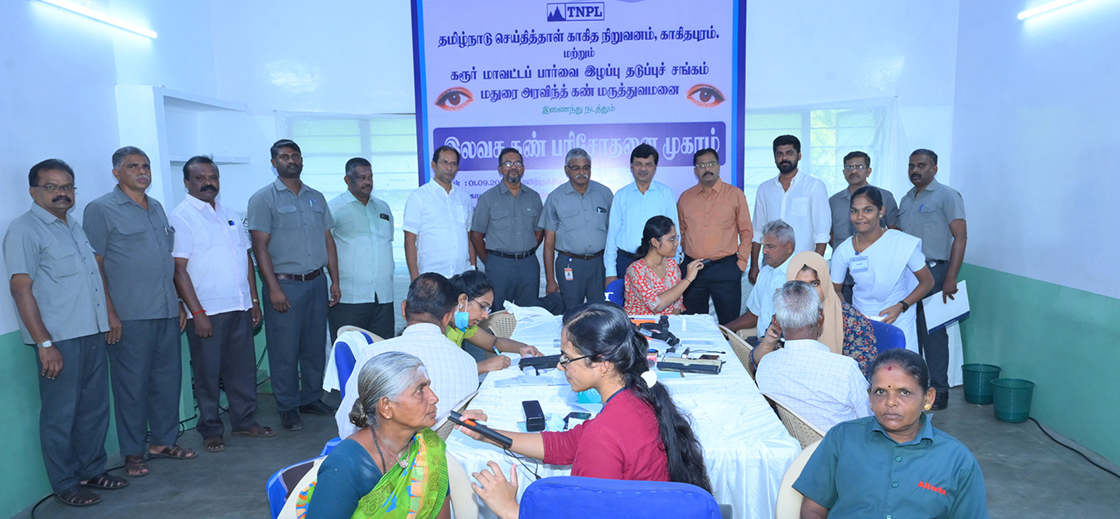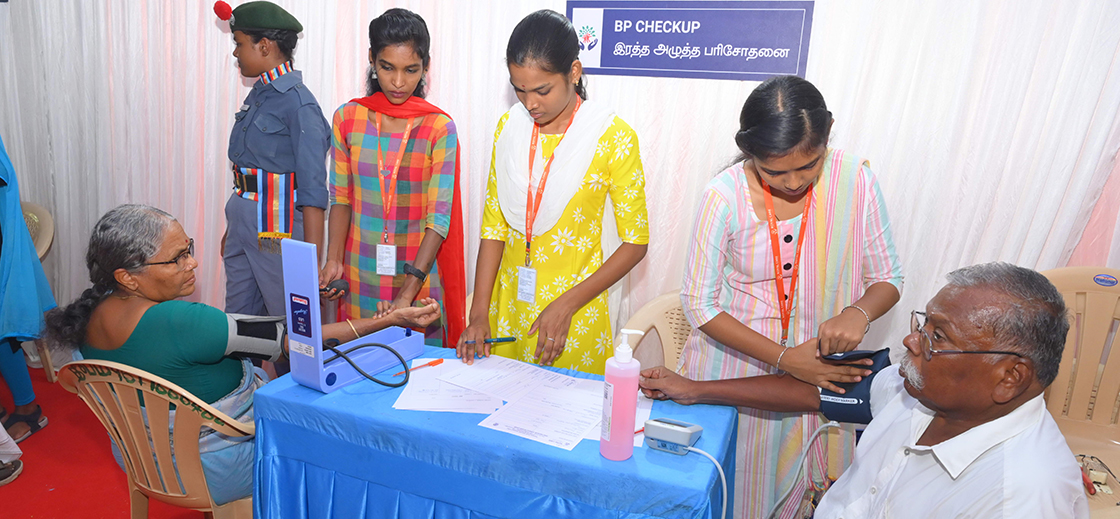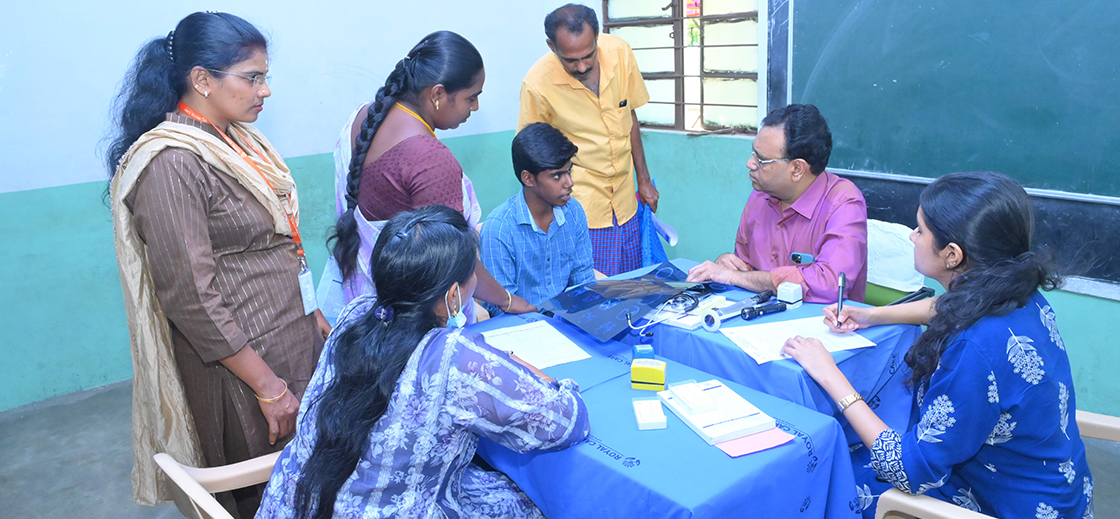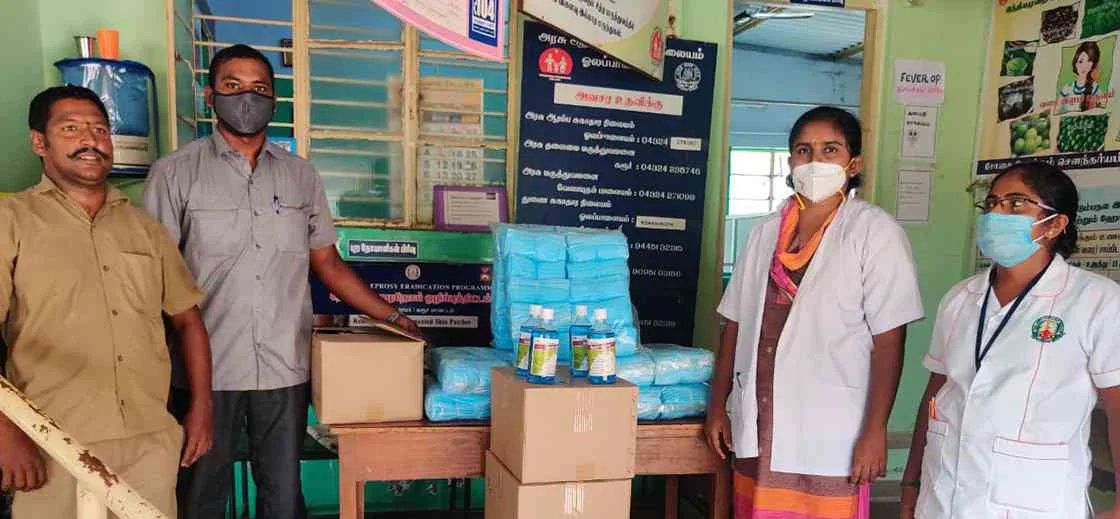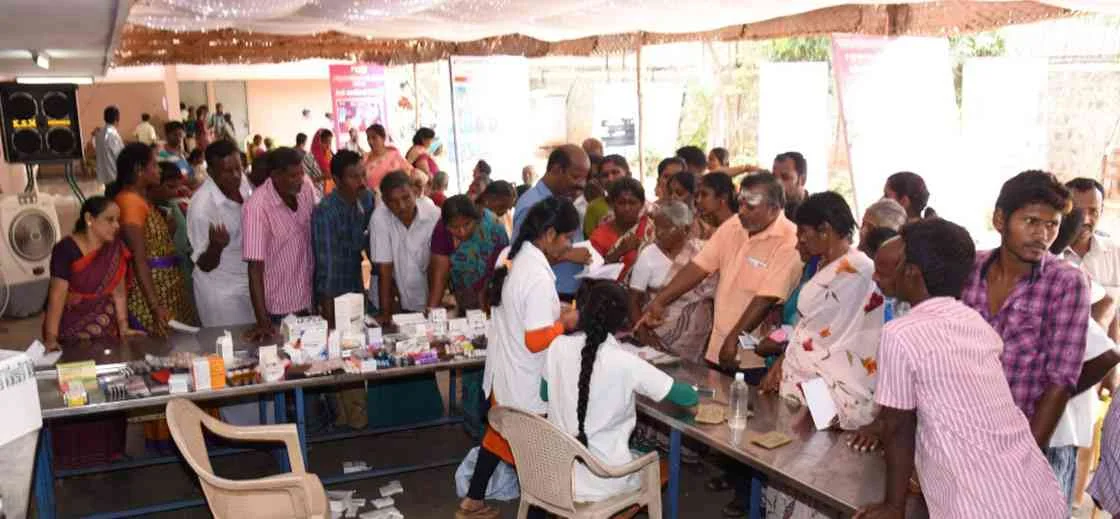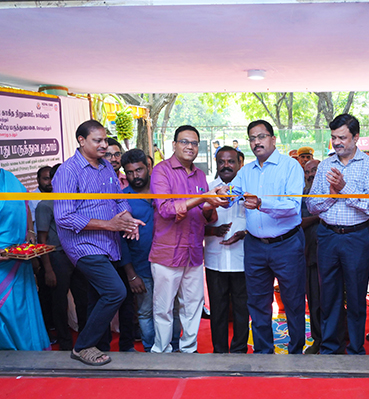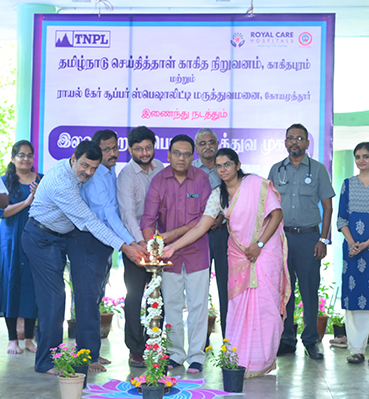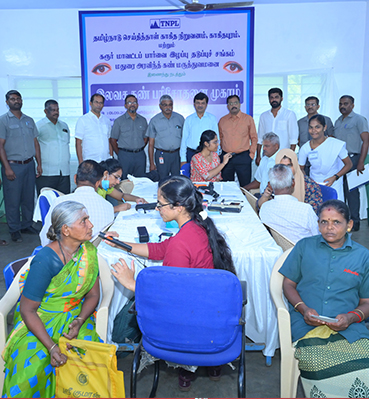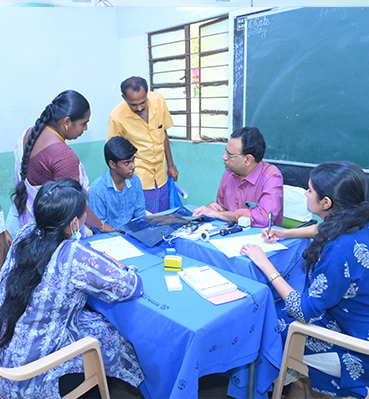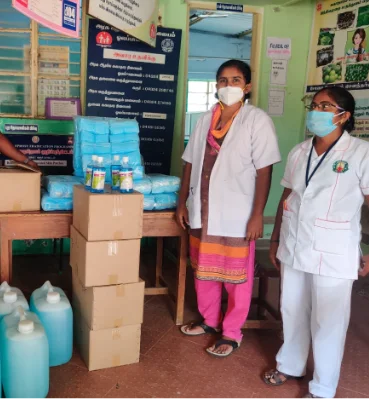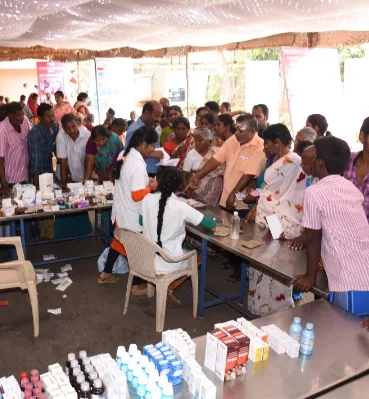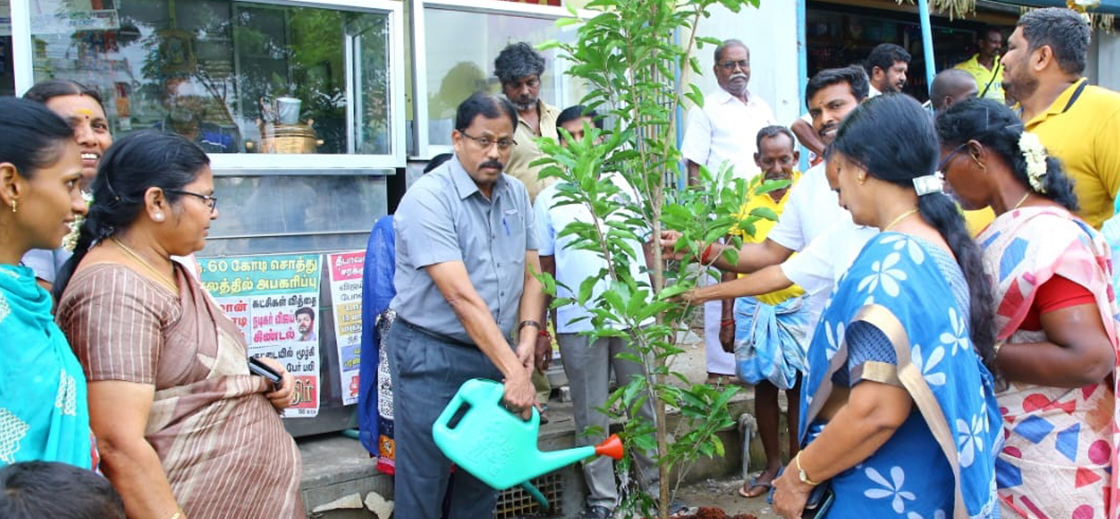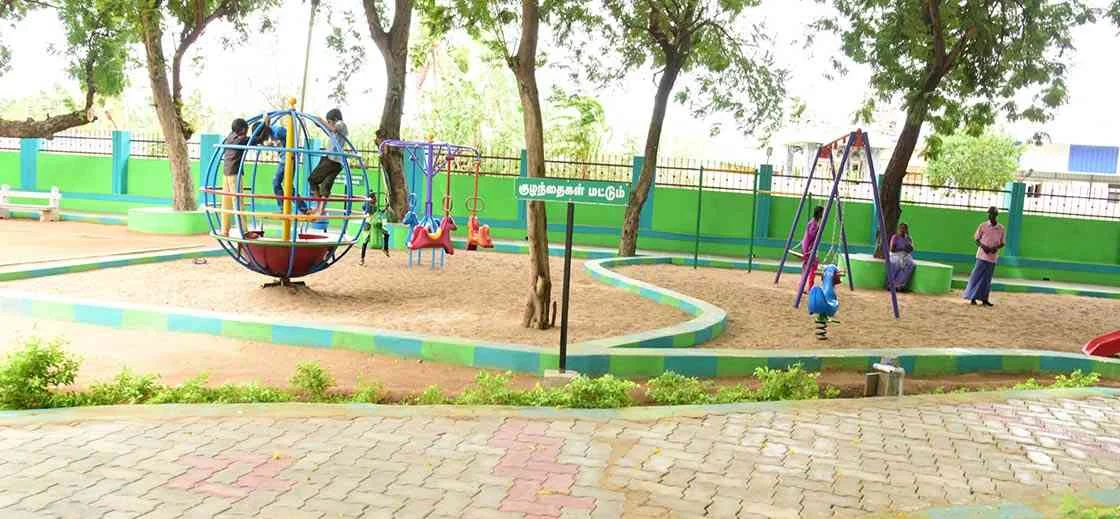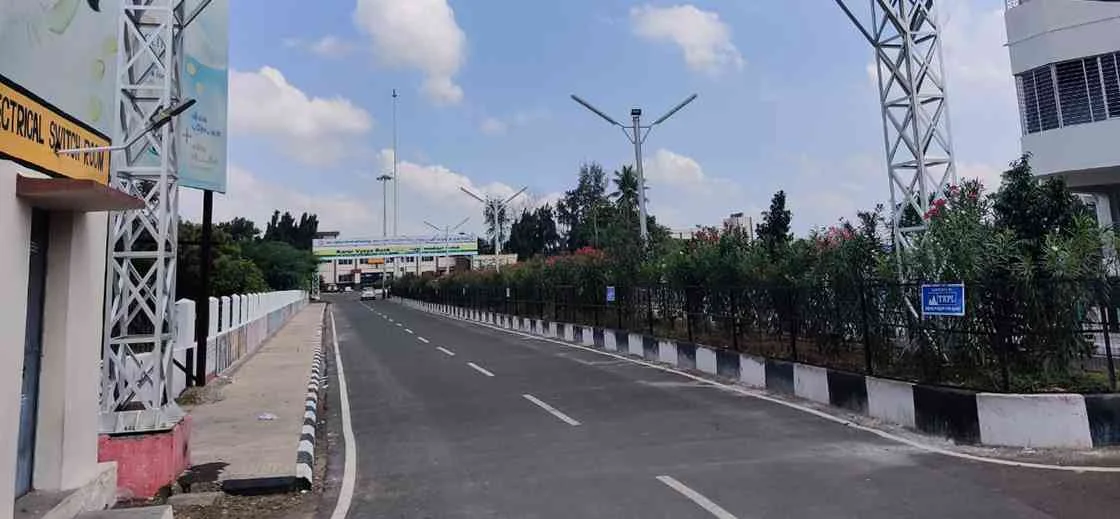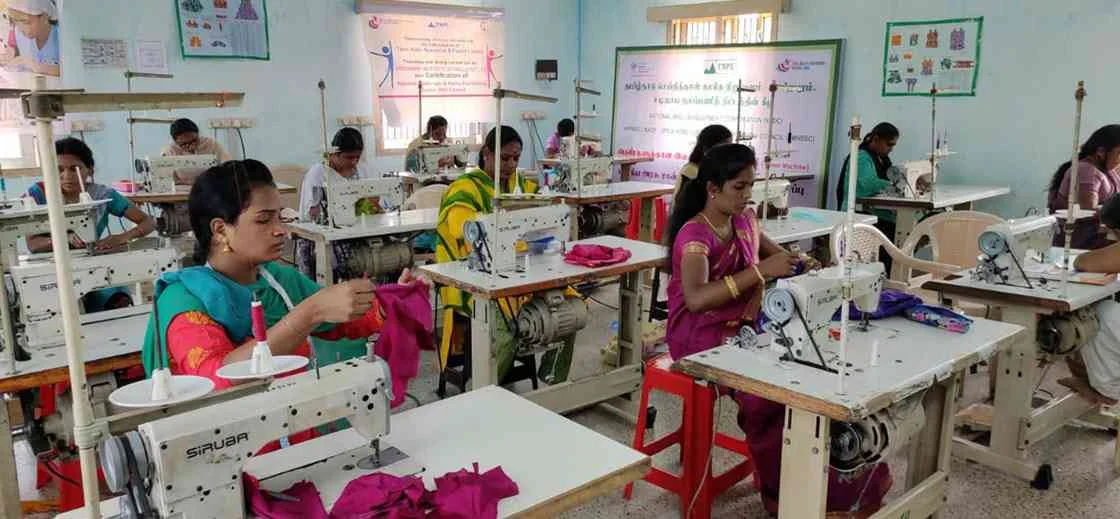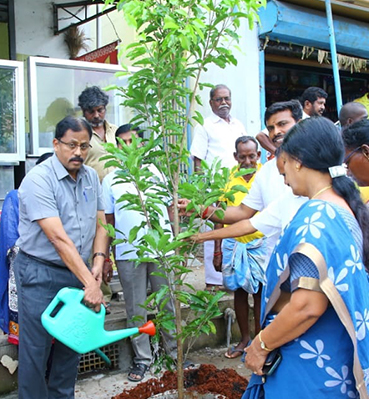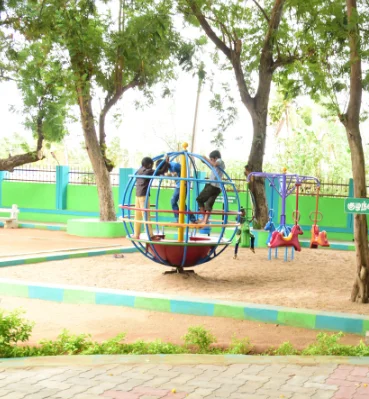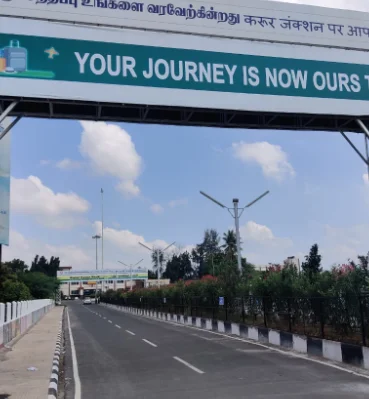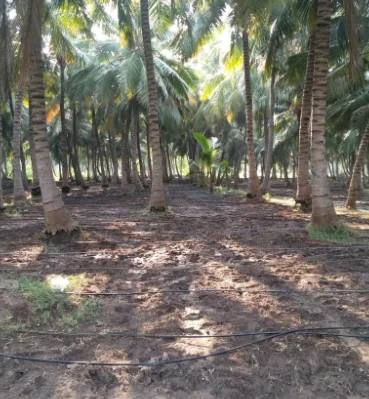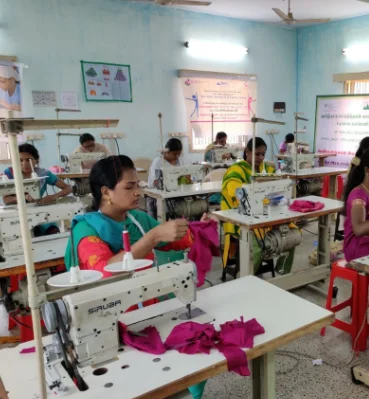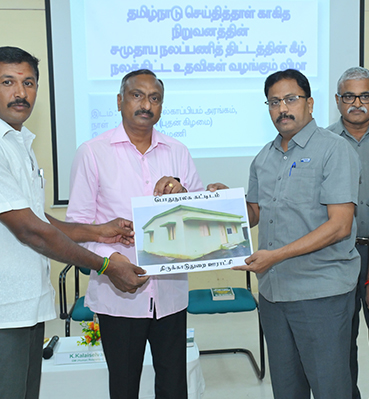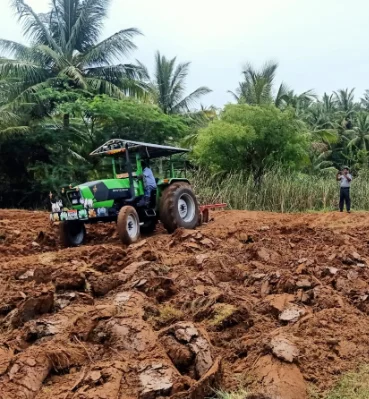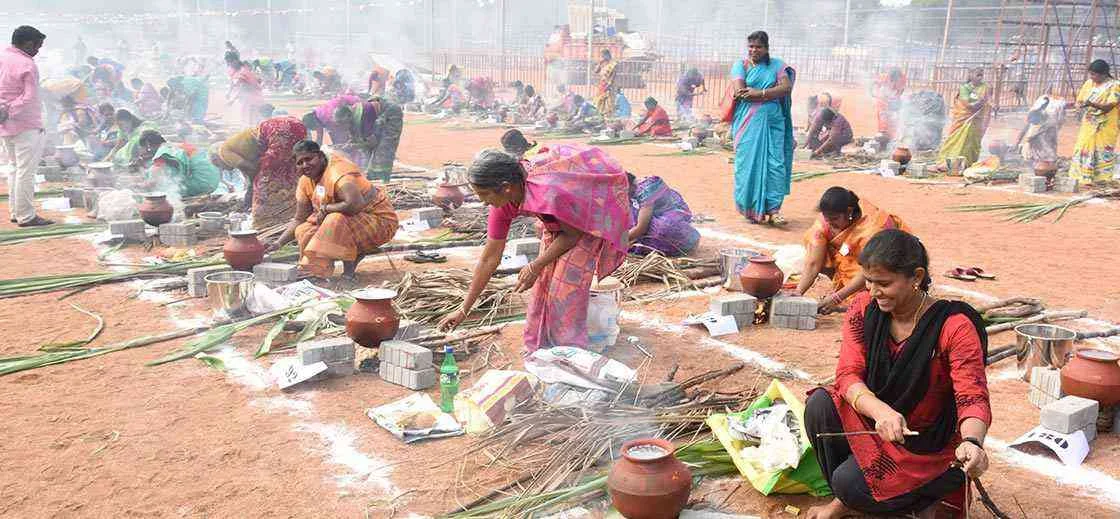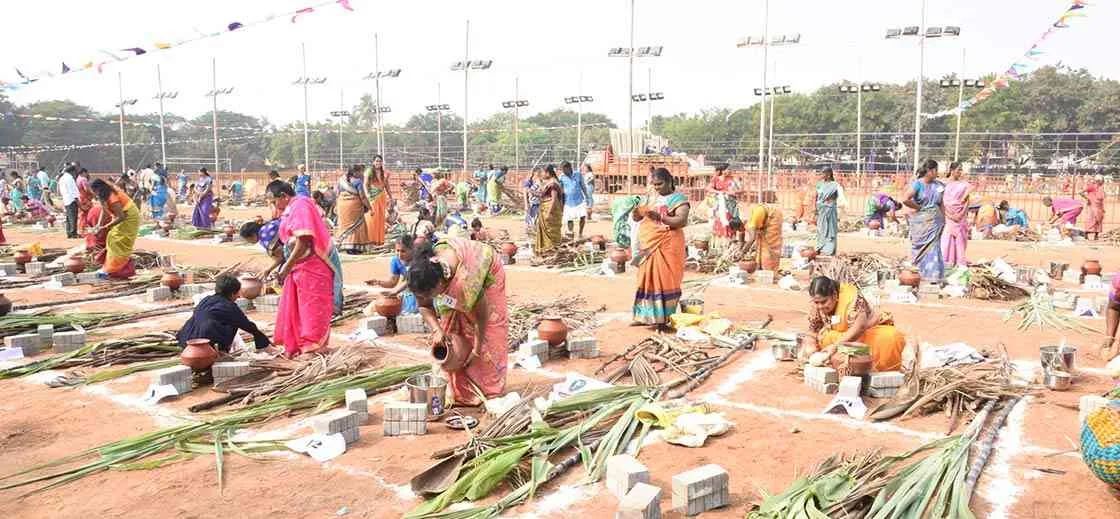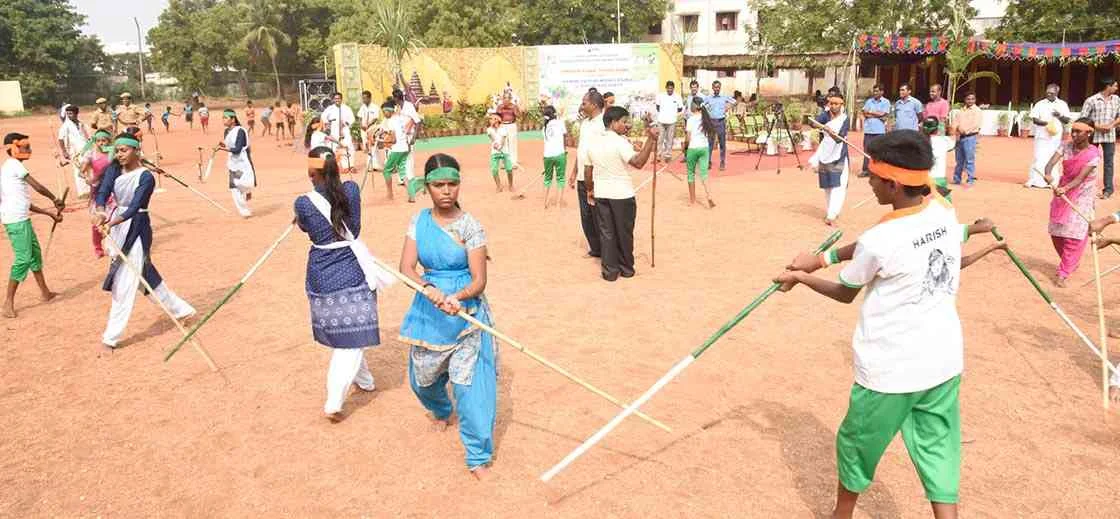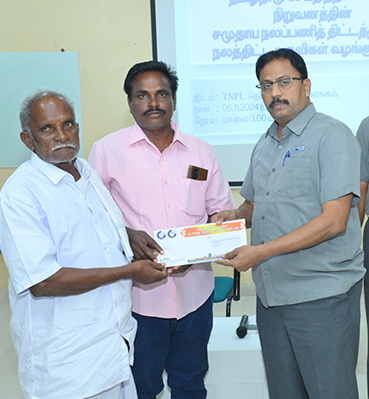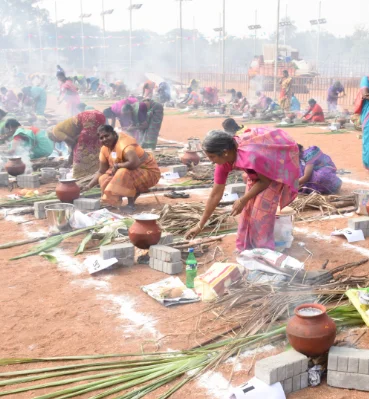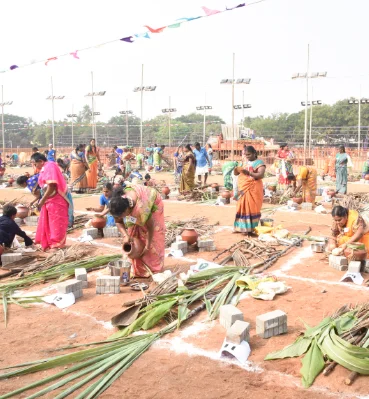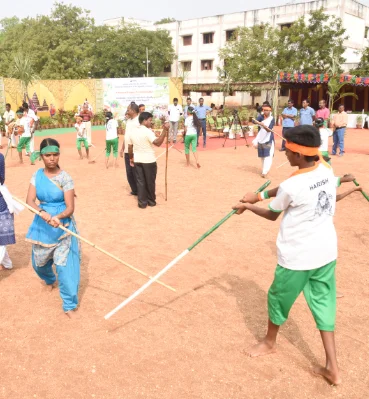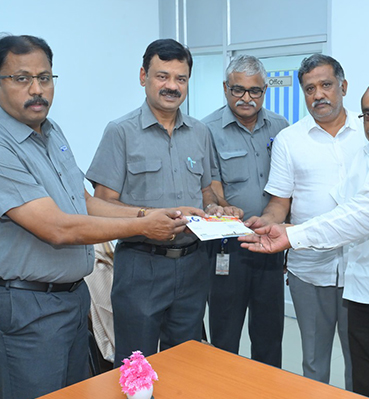

As India’s leading paper manufacturer, TNPL believes in giving back to the same community that enables them to function. Upholding several social duties, it has framed its CSR Policy in accordance with section 135 of the Companies Act, 2013, and the Rules set out in companies (Corporate Social Responsibility Policy) Rules, 2014. This policy intends to provide the basis for the sustainable development of an area. It seeks to promote continuous dialogue with the community, upholding ethical practices.
TNPL Arakkodai Trust
TNPL Arakkodai Trust was established in 2007 as an autonomous body as part of Corporate Social Responsibility (CSR). Under this trust, TNPL also undertakes holistic development on a pilot basis in adjoining areas defined in the CSR policy. Their primary focus is the well-being of all citizens in the area, and social development in all sectors under the CSR policy. They also see to it that the economic and social aspirations of the people in these areas are recognized and promoted.
Sectors of Impact
Education and Sports
Literacy and education are the foundation to a stable future. TNPL thus upholds several duties to ensure that students are adapted to higher learning and receive quality education:
- Facilitate cognitive development in schools, focusing efforts towards students of Upper-Kindergarten, and from Class 1 to Class 5. Additionally, assist the same group in Spoken English
- Track learning deficits in students and assist in their improvement. Also aim to provide appropriate care to all special students
- Provide education free of cost to students from economically backward sections.
- Improve standards of Government schools through conducting special coaching classes, and supplying of notebooks and examination kits
- Improve the infrastructure of Government schools
- Promote sports and athleticism through various sports events
- Strive to promote education in paper technology and sponsor its Diploma obtainment
- Conduct Talent Exploration Meet and provide career development counseling
- Promote value added skill development
Assisting in Healthcare and Medical Services:
Health is the index for a developing country. Thus, a holistic approach is taken to maximize favourable public health and disease prevention:
- Periodically assist health and disease awareness camps
- Actively aid camps on Child Health and Nutrition, Women’s Health (particularly anemia), and early detection of non-communicable diseases (including eye camps) are areas of increasing concerns
- Adequate medical assistance to the differently-abled
- Provide financial assistance so that personal and crucial medical expenses are met
- Spread awareness on health screening centres
- Support infrastructure development of PHCs and GHs
- Provide adequate resources in cattle care disease prevention and training
Improving the Quality of life:
Infrastructure and economic development help live a comfortable life, while social development provides diverse experiences that advance individual growth. All these sectors become equal targets to promote an all-round rise in living standards:
- Encourage community participation, primarily women’s participation
- Facilitate knowledge pools assist in establishing and running local libraries.
- Aid adult learning
- Self-impose social audits to ensure that their efforts create an impact
- Undertake need analysis and fill gaps hindering infrastructure development
- Fully support the development of public infrastructures like parks, roads, culverts, crematoriums, stormwater drainage, bus shelters, solar street lights, etc.
- Enable self-sufficiency among families through direct money-making aids like self-sustainable household income improvement, capacity building in economic activities by organizing farmers, value addition to animal husbandry, incitement of entrepreneurship, and self-help groups; and indirect aids like technology training (for farmers) and non-farm skill development
- Empowering women entrepreneurs to take initiatives
- Provide special training for TNPSC, Police recruitment, and bank exams; and also promote skill development in automotive, plumbing, typewriting, tailoring, and computer.
Environmental Development:
To propagate the importance of environmental health, TNPL takes various environmental restoration measures on greenery, sanitation, and nature conservation:
- Carrying out activities like carbon footprint reduction, tree cover and greening, landscape development, and village-level solid waste management
- Popularize cleanliness and sanitation with concepts like garbage reduction, waste handling, and recycling- focusing on ODF
- Spread awareness of local flora and fauna through necessary support activities in addition to environmental wellness activities
- Plan and implement micro watersheds, assist the construction of water conservation infrastructure, and promote rainwater harvesting. Moreso, they take measures to desilt ponds, strengthen bunds, upkeep tanks, other similar structures
- Reclaim degraded soil for soil conservation
- Take initiatives in the adoption of endangered animals Spread environmental awareness to students
Protecting and Preserving Culture and Heritage:
TNPL believes that a locality’s culture translates to their identity, thus they stand firmly in aiding this sector as the others:
- Conserve their heritage buildings
- Promote arts and crafts, and facilitate local literary activities, music, dance, and drama
- Assist in face lifting in preserving popular sites of worship and historical importance
CSR Plan:
Each year, a CSR Rolling Perspective will be prepared in consultation with the villagers- addressing the needs and gaps under all sectors covered by CSR. This plan will be then tailored to suit the CSR Budget for the year. Major activities identified in the plan will be based on consultations with the stakeholders or requests from them. The approved and implemented plan is made sure to have an equitable distribution of budget among all sectors- and makes sure that none gets ignored.
CSR Budget:
Every year, at least 2% of the average profit of the previous 3 years will be set apart as the CSR Budget for the year. Here, sectoral allotments will be based on the exercise developing the CSR Plan for the year.
Expenditure may be Incurred as:
- Direct expenditure
- Contributions allowable as claimable expenditure under the Income Tax Act
- Contributions to the TNPL Arakkodai Trust formed for carrying out CSR activities
- Contributions to Government agencies for specific programs
- Contributions to recognized, reputable organizations with certified audited statements
Implementation:
The TNPL’s CSR group is responsible for reporting to ED (O) and MD, and is In charge of implementing the approved CSR plan for the year, setting out the perspective plan, etc. Subsequently, TNPL will also promote a social audit to assess the quality of its CSR interventions. Any economic and social gains will be monitored.
In general, assistance will be provided in kind and cash transactions are avoided in principle. Assistance in the form of funding support is restricted to Government Bodies, Reputed Social Welfare, and non-governmental organizations.
CSR Policy:
This policy is framed with the larger objective of seeking comprehensive and round development of the area where TNPL’s plants are located- primarily in the radius of 5-10 km from the plant locations at Kagithapuram and Mayanur in Karur district, and Mondipatti in Thiruchirapalli district.







